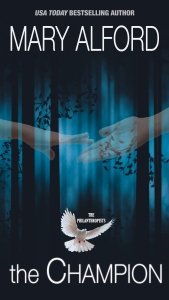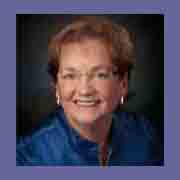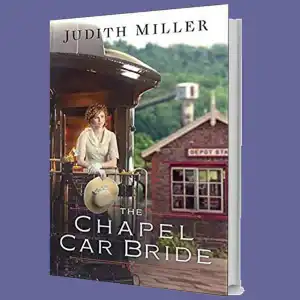The Appeal of Amish Books
@2012, Vicki Hinze
I’m a suspense writer who loves faith-affirming thrillers with a light romantic element. But I’m also an eclectic reader. I like something in most genres of books, though I’d not read Amish novels. That was soon to change.
My agent got a call from an editor who expressed interest in me writing some Amish novels. Since I hadn’t read any, I let the possibility slide. Then came a second editor, and then a third—all wanting Amish novels. By this time, I figured out I was getting nudged. There was something I was supposed to do, learn, or know regarding these books.
Aware that I like variety and writing new-to-me books or blending genres that haven’t yet been blended to create new sub-genres, my agent asked if I was interested. On this third approach, I still hadn’t read any Amish novels, so I answered him with a question. “Who are the best writers of this type of book?” He recommended several, gave me a list of names, and so I read them.
Then I did some research to determine what about this type of book readers loved. At first, I thought it was the unfamiliarity. Readers love to be armchair adventurers, and delving into a world that is so different from the one most walk in everyday holds a great deal of appeal. Some would say charm. I would say it elevates curiosity and holds intrigue, kind of like going around the next bend when canoeing on the river. You never know what you’re going to run into there.
But as I read more and more of the books, I deduced that unfamiliarity is only some of the appeal of Amish novels. I think there are two other things that make these books just as appealing, though to different types of readers. Those two things are:
1. Simpler times.
2. A structured society.
The Amish are “plain” people. They aren’t into adornment and the pace of life is slower. Some settlements are no electricity, no computers or TV or phones (cell or landlines), and no complicated lifestyles. They’re busy, industrious people who ban together to do what needs doing in their communities, but the harried pace of most of our lives is absent in theirs. This slower pace, more family and community focused lifestyle appeals to many. It seems the more harried the life, the more appealing we find this simple lifestyle.
It’s a common thing to imagine the grass being greener on the other side, isn’t it? Often we wish for less complex, less hectic lives. With so many single parent households—more than married couple households for the first time in our nation’s history—and the fact that many of us don’t interact much with others physically (apparent from the Internet and its conversations), we feel that separation and isolation. Some enjoy it. But for many of us, the absence of a sense of belonging and those family-and-community connections create a yearning in us that these books nurture and feed.
These are strong emotions inbred in us, and our reactions to them are also strong. Historically, being a part of a community wasn’t just a yearning, it was critical to survival. To grow food, to protect and defend against those intending harm. The reasons for this community necessity are many, and they encompass not only physical needs that alone we are not able to fulfill but also emotional needs. These community-and-family-centric novels do that.
Amish novels also offer readers a structured society. For many of us, daily life is awash in confusion. We’re nudged on what to think, told who and what we are, directed in our thoughts and actions by others who have “skin in the game.” Be politically correct, be strong or weak, be silent or speak up. This goes for the big questions on the direction of our country down to the little things. Does a man open a door for a woman or not? He doesn’t want to be rude, or to imply she’s incapable of opening the door for herself.
Simply put, the everyday ordinary is complex and confusing, and that makes a simple lifestyle with structured rules appealing. Everyone knows the rules. Everyone is expected to abide by them, and if they don’t, they know the consequences and that they will pay them, whether those consequences are to admit the flaw or crime publicly before the community or, if the offense is deemed worthy, being shunned. Excommunicated, so to speak, not so much as looked at by the rest of those in the community.
To some, this sounds harsh. To others, it appeals. They know the rules, what’s expected of them. This is a welcome respite from the confusion of readers’ normal, daily lives.
So those are the three main reasons I think Amish books hold such appeal to readers: they venture into an unfamiliar world without risk, the simple lifestyle is a sharp contrast to their complex lives, and there is an absence of confusion, the structured community makes the rules clear.
 Of the books I read, I most enjoyed Beverly Lewis’s The Shunning, which was book 1 in her Heritage of Lancaster County series. I read many novels that were good, some that were excellent, but this book stood out for me personally.
Of the books I read, I most enjoyed Beverly Lewis’s The Shunning, which was book 1 in her Heritage of Lancaster County series. I read many novels that were good, some that were excellent, but this book stood out for me personally.
What about Amish books do you like? Have you read many of them? What’s your favorite?
Blessings,
Vicki
VICKI HINZE
Fated to Thrill. Destined to Heal.
Latest Release: Not This Time
Next Release: Survive the Night
P.S. On me writing Amish books? I don’t know. My fondness for nail-biting suspense might be at odds with my findings. But I’m open to being convinced that suspense would layer in nicely. I still haven’t decided.
































































I’ve read almost all of Beverly Lewis’ books. Another great author is Wanda Brunstetter. Beverly has some suspense, albeit not the murder type, in her books–relating to the true birth order of an “Amish” young girl, etc. There are some adding murder mystery, though I’ve haven’t read them yet. Personal relationships tend to be the overriding essence of Amish books for me, and the struggles therein. Looking forward to your twist on the Amish!
LikeLike
i have a amish penpal.i send all the amish books to her,once i’m done.she does not like any of them that talk about killing or murder.it seems like there’s alot of new books out there that have killing in them.i don’t like reading amish books that take away from the simple way they live.i read enough about killing in the newspaper every day.
LikeLike
I’m glad you asked this question, Vicki, and went in search of an answer. I had a similar thing happen to me about a little over two years ago. At first, I wasn’t sure. Me, write an Amish book (set in Texas, per editor request)? I’d read a few and did enjoy them. The Texas location didn’t pan out, but as I kept an open mind and kept studying and reading, I found a unique setting and the characters began tumbling into my brain. My series with Abingdon Press will have its first book release in late 2013, and it’s set among the Amish and Mennonites in a special village called Pinecraft in the city of Sarasota, Florida. It’s a little different. I don’t think there will be a buggy in the series (save one section of book 1 in Ohio). 🙂
LikeLike
How different is the Amish community from, say, Pride and Prejudice? Obviously the clothing and work (farming) are different, but both set characters within an unyielding social structure and withhold most modern conveniences. Without so much as a telephone, a great many ordinary events can become life-threatening. This setting seems ripe for great stories! You should go for it.
LikeLike
I am excited about your book on the Amish. I so love reading about them. While I admire their simple life, I am not sure that I would be able to do it. I love to read way too much. And I am sure that they would not allow me to have all the books that I love having around me. What would life be without books and a comfy chair?
LikeLike
I identified with your first paragraph in the type of books I read. I admit I’ve only ever read one Amish novel and that was ten years ago or so, before it was popular like it is now. From what I hear, I picked one of the books that wasn’t that good. Ha! That always happens. I’ve been more than amazed how many people I meet that I caught up in reading Amish books. Do you think the Amish craze will slow down anytime soon?
LikeLike
I’ve read a lot of Amish fiction. My reasons are pretty much what you said. The less hectic lifestyle, community building/support, and clear rules are all appealing to me. Some authors are definitely better than others and delve deep into the lifestyle. Beverly Lewis writes more complex story lines, but Suzanne Woods Fisher is excellent too! She wrote The Keeper and I loved it 🙂 I’ll be looking forward to what you come up with!
LikeLike